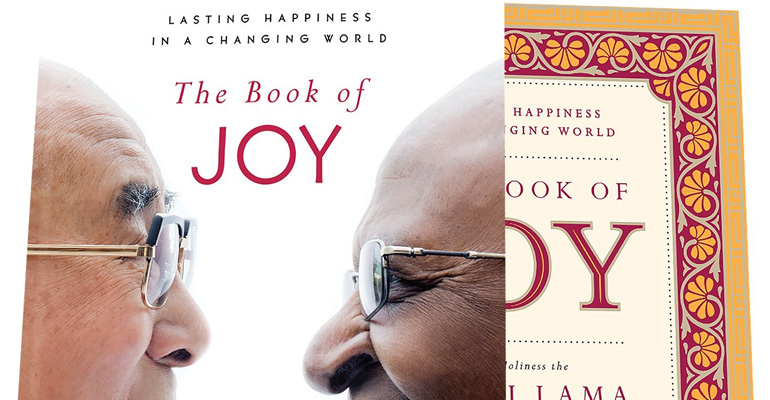No Crumbs Here
The Book of Joy: Lasting Happiness in a Changing World
By His Holiness the Dalai Lama and Archbishop Desmond Tutu with Douglas Abrams.
In April 2015, the venerable Archbishop Desmond Tutu traveled with writer Douglas Abrams to Dharamsala, India, to meet a dear, old friend: His Holiness the Dalai Lama. There they engaged in a week’s worth of dialogue about joy–joy as a state of being, as a spiritual concept, and as a key to a happy life. Abrams facilitated the discussions and served as the formal scribe. Through the week, he elicited the Archbishop’s Christian understandings and the Dalai Lama’s Buddhist ones–ideas, beliefs and concepts that intersected more often than not. As a fruit of this exchange, a joyful text was born.
Considering the credentials of the participants, it’s no surprise that The Book of Joy is an excellent read. The book opens with a deep spiritual truth: “Lasting happiness cannot be found in pursuit of any goal or achievement. It does not reside in fortune or fame. It resides only in the human mind and heart, and it is here we hope you will find it” (ix). The authors tell us that lasting happiness, otherwise known as joy, is a state of being, not simply a reaction. It is a choice, not an emotion. Each subsequent section of the book (the nature of joy, the obstacles to joy, the eight pillars of joy, and practices for cultivating joy) is inspiring and informative. Yet, this text’s true substance, power, and influence lie in the energetic presence of the central figures: His Holiness the Dalai Lama and Archbishop Desmond Tutu. Their own joy–a mainstay in their unmitigated fortitude–can be felt in every line.
What’s not here is a neat and tidy definition of joy. In fact, sometimes joy and happiness are synonymous, and sometimes they are not. But a neat and tidy definition isn’t really possible as the true meaning of joy comes through our felt sense in a mix of visceral, emotional, and spiritual waves. Defining it in some overly prescriptive way shrinks its magnitude, and as American poet Mary Oliver aptly points out, “Joy is not made to be a crumb.”
The Book of Joy is not made to be a crumb either; it is a satisfying meal prepared with loving hands, so eat up–and do not be surprised if you go back for seconds.
Review by Jill A. Lahnstein


